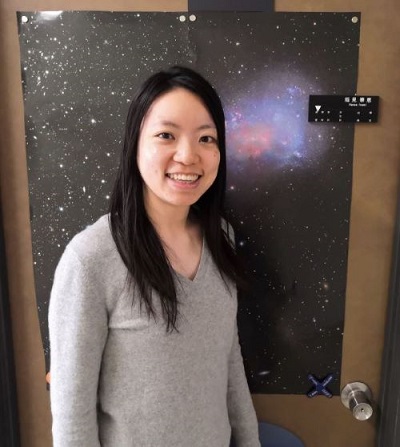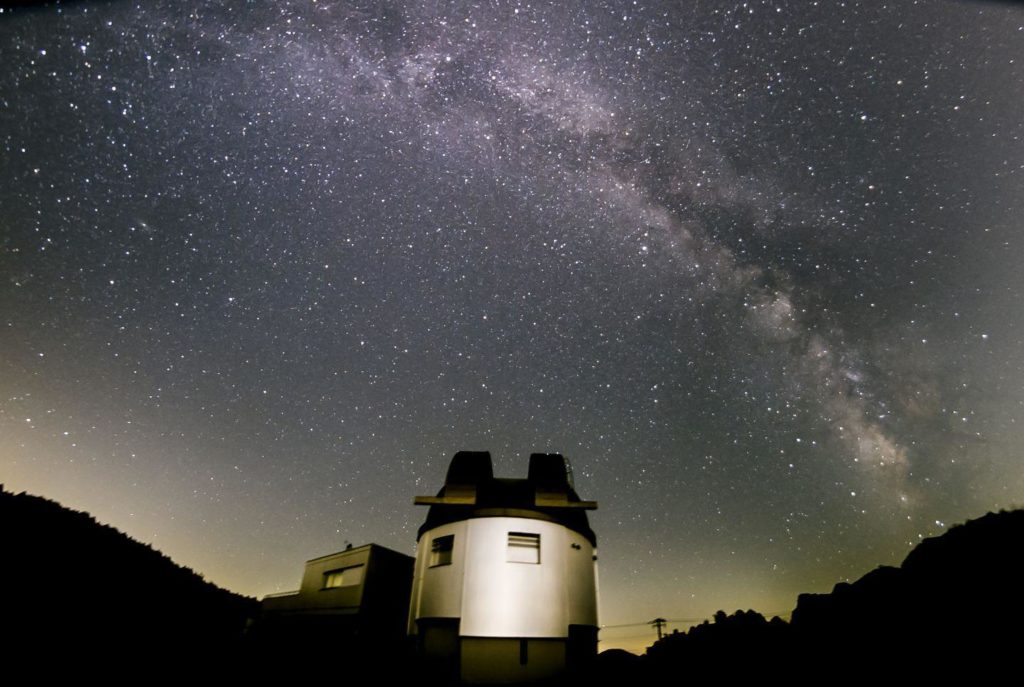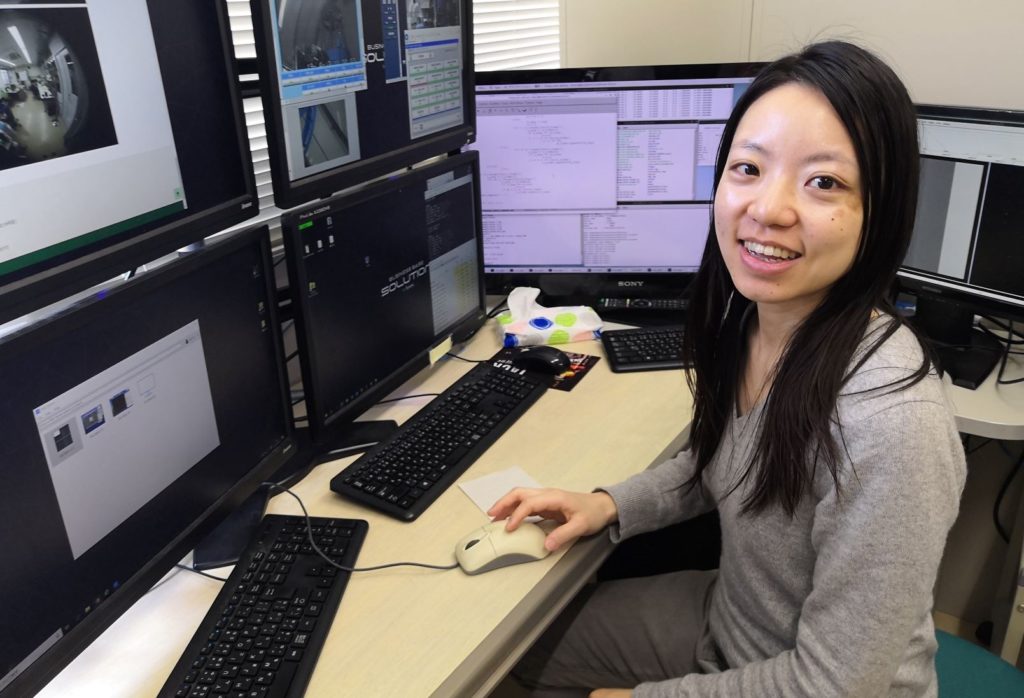Assistant Professor Hanae Inami of Astrophysics

Can you please describe your field of research?
I am trying to understand how galaxies in our universe were born and how they evolve. I use telescopes to observe galaxies that are forming stars. In particular, I am interested in galaxies which are very bright in the infrared but not in visible light. Astronomers Recently discovered that these types of galaxies made most of the stars at a time when the universe was most active, around 11 billion years ago (about 3 billion years after the big bang).
What got you into this field?
When I was little, I wanted to become an astronaut. I saw them on television floating in space, which attracted me to discover where this super cool place could be! Then I learnt that there was a huge place called the universe with beautiful and curious objects.

Scientists like Inami look up to the sky to make new discoveries and try to find some answers about the workings of the universe Credit: Ryosuke Ito
What achievement you are most proud of?
This is a difficult question to answer as I feel that I'm still in the middle of climbing a large mountain whose summit I still can't see. But one thing that I'm pleased with myself for doing is that I was courageous enough to go abroad for my research. I had a truly wonderful, priceless experience not only in my work but also in my life.
Can you describe some challenges of your work?
For example, I feel getting research funding and getting a permanent position are quite challenging. Also, when we are building our careers Scientific challenges are difficult but fun, so I actually enjoy them. Things that are external to scientific challenges are harder to face. For example, we tend to move around institutes, so personal and family relationships can be tough. I move around a lot but have been lucky as my partner can work remotely.
What motivates you in your research?
New discoveries! It's astonishing when I find a new result and I realize that I'm likely the only person on the earth to know about it. This feeling drives me to explore the universe.
I also love seeing students achieving their goals. Working together with them is simply a joy and I am always proud of them becoming more and more independent.
Another thing that I enjoy is seeing people being amazed by astronomical phenomena at star parties and such. I like the feeling of sharing something inspiring with people.

Through computers Inami can observe the sky remotely from the university campus
Anything exciting coming up in your research?
New “eyes” to see the universe, such as gravitational waves and neutrinos. Until recently we have mostly relied on electromagnetic waves (radio, infrared, visible light, ultraviolet, X-rays) to observe the universe, but with these new methods to observe astronomical objects, we are moving on to the next epoch in understanding our universe.
There are also many planned new telescopes, both ground- and space-based, that will give us a much better view (higher resolution and sensitivity) to see more details and even further (in astronomy this means seeing further back in time). I can't wait to use these telescopes!
What makes a great work environment?
I think that having an independent position with collaborative and friendly surroundings is important. I have been very lucky with my work environment throughout my career so far. My past advisors and supervisors let me explore issues that I want to solve, but at the same time provided me precise guidance. I have also been extremely fortunate to meet many friendly colleagues who are always willing to offer help.
What do you like to do when you're not working?
I like traveling, hiking, food (both eating and cooking), swimming, and photography. I also wish to be able to paint well. I've been tempted to learn to play some Andean music instruments along with my partner, but so far I only can make noise and I haven't been patient enough to go beyond this point!
Originally written by Emma Buchet (Hiroshima University Science Communication Fellow)
Originally published on May 8, 2019

 Home
Home